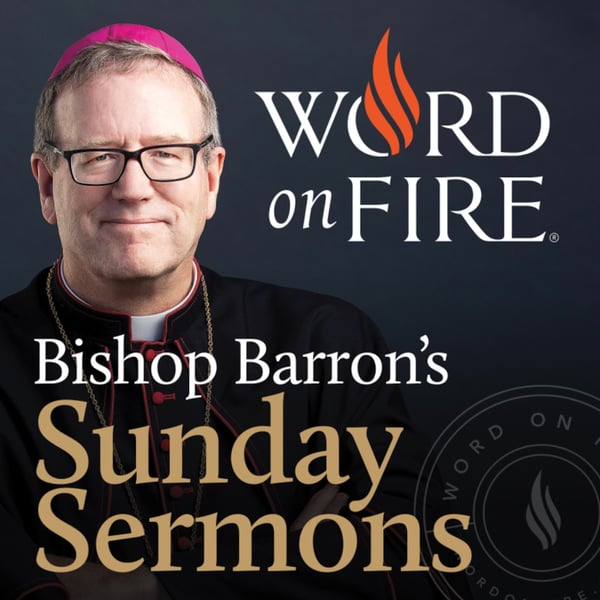Salt, Light, and a City Set on a Hill
Bishop Barron’s Sunday Sermons - Catholic Preaching and Homilies
Bishop Robert Barron
4.8 • 4.6K Ratings
🗓️ 9 February 2014
⏱️ 14 minutes
🧾️ Download transcript
Summary
Transcript
Click on a timestamp to play from that location
| 0:00.0 | This is Cardinal Francis George. I invite you to join me for the next few minutes to |
| 0:08.9 | reflect with Father Robert Barron on the word of God, which is the word on fire. Word on |
| 0:13.7 | fire, Catholic Ministries, is a non-profit ministry at the forefront of Catholic evangelization |
| 0:18.8 | using new media to spread the faith and every continent. Father Barron challenges us to |
| 0:23.5 | open our hearts to the word on fire, which is God's word of love for each of us. If our |
| 0:28.5 | hearts are open, the Lord can change and transform us so that we might speak with love about the one |
| 0:34.4 | who is love. The global benefactors of word on fire with the support of the Archdiocese of |
| 0:39.1 | Chicago now present word on fire. Peace be with you. Friends of the commencement of the sermon on |
| 0:49.7 | the Mount, Jesus compares his disciples to three things. To salt, to light, and to a city set on a hill. |
| 0:59.5 | Notice please that all three exist, not for themselves, but for something else. Look at salt first. |
| 1:09.2 | In Jesus' time salt was used to season and preserve meat. So before refrigeration, |
| 1:18.5 | meat had to be cured in order not to go bad. It was also used to render earth in fertile. |
| 1:27.7 | I think when a conquering nation wanted utterly to eliminate an enemy city, |
| 1:34.2 | they would tear down its walls, they'd burn its buildings of the ground, then they would salt the |
| 1:38.9 | earth. How come? So that nothing would ever grow there again. Rome did this to Carthage, for example. |
| 1:48.2 | So salt is not so much valuable in itself. It's valuable for what it does, |
| 1:54.0 | what it how it affects other things. By the same token of light isn't so much for itself, |
| 2:00.7 | rather we see things by it. It illuminates things upon which it shines. |
| 2:08.6 | And then finally, in ancient times, long before maps and GPS and all that, a city on a hill |
| 2:14.5 | was a point of navigation. It's the way travelers would make their way on land. They'd look at, |
| 2:22.0 | oh, there's that city, that's north of where I want to go, etc. |
| 2:28.5 | Now in our rather privatized and individualist culture, we tend to think of religion as something |
... |
Please login to see the full transcript.
Disclaimer: The podcast and artwork embedded on this page are from Bishop Robert Barron, and are the property of its owner and not affiliated with or endorsed by Tapesearch.
Generated transcripts are the property of Bishop Robert Barron and are distributed freely under the Fair Use doctrine. Transcripts generated by Tapesearch are not guaranteed to be accurate.
Copyright © Tapesearch 2025.

